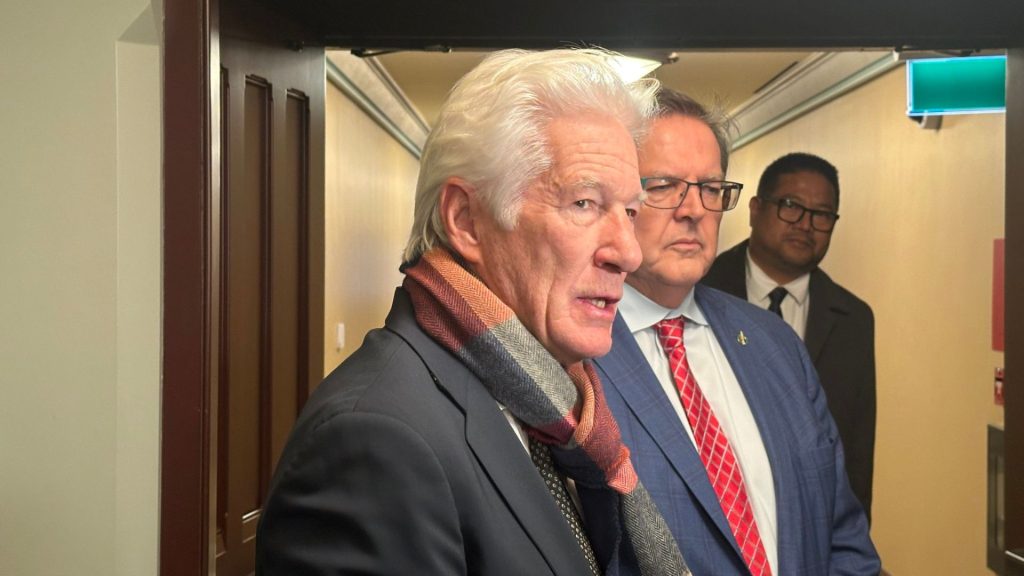Hollywood star Richard Gere garnered a standing ovation from Canadian politicians during a significant appearance in the House of Commons on Monday. The renowned actor arrived in Ottawa to participate in a parliamentary hearing dedicated to addressing the human rights situation in Tibet. This event coincided with the annual Canada Tibet Lobby Day, an initiative advocating for the rights and freedoms of the Tibetan people.
During Question Period, Liberal MP James Maloney emphasized the importance of the event by highlighting that this year marks the 90th birthday of His Holiness the Dalai Lama. Maloney recalled that, following a request from the Dalai Lama to then-Prime Minister Lester Pearson, the first two Tibetan refugees arrived in Canada on October 15, 1970. He stated, "Since then, Tibetan Canadians have been contributing to the Canadian economy, community, and social fabric of our country." He underscored the Dalai Lama's message of peace and non-violence, noting its far-reaching impact on global harmony.
The historical context of the Tibetan struggle was also addressed. In 1959, after the Chinese Communist Party took control of Tibet, the Dalai Lama and thousands of Tibetans were forced to flee their homeland, leading to a severe deterioration of human rights conditions in the region. Maloney welcomed visitors at Parliament Hill, highlighting their collective commitment to championing Tibetan rights. He led fellow MPs into a standing ovation for Gere, whom he described as a "true champion for Tibet." Gere, who was present in the public gallery, has previously collaborated with Maloney in efforts to support Tibet's autonomy.
Earlier in the day, Gere spoke to reporters regarding Prime Minister Mark Carney's decision to rejuvenate Canada’s relationship with China amid ongoing trade tensions with the United States. He commented, "There’s no reason why everyone should not be talking." He expressed skepticism towards international arrangements made by China, suggesting that they have not benefited anyone. "I’m more worried about the U.S.-Canadian relationship [...] it’s a bit strained right now, but I think we can remember that this administration is not going to be there forever," he added.
Gere expressed concern about recent developments affecting Canada’s global trade relationships, including relations with China amid U.S. President Donald Trump’s imposition of tariffs on key sectors crucial to the Canadian economy. He described the situation as "problematic" and urged politicians to "take a deep breath" while looking at the realities facing international relations.
Notably, Gere's advocacy for Tibet is longstanding; he famously faced a 20-year ban from the Academy Awards due to his outspoken criticism of China's occupation of Tibet during the 1993 ceremony. The Academy, however, has denied enforcing a formal ban. He made a return to the Oscars in 2013 to present awards for Best Original Score and Best Original Song.
Bloc Québécois MP Alexis Brunelle-Duceppe also took the opportunity during Question Period to express gratitude for Gere’s participation and to reaffirm the Bloc's commitment to supporting Tibetan self-determination. Recently, Prime Minister Carney held talks with Chinese President Xi Jinping in South Korea and accepted an invitation to visit China in the upcoming new year.
The Canadian government officially recognizes Tibet as a region within China, acknowledging its distinct cultural identity while maintaining a policy that expresses serious concerns regarding human rights violations in the region.












